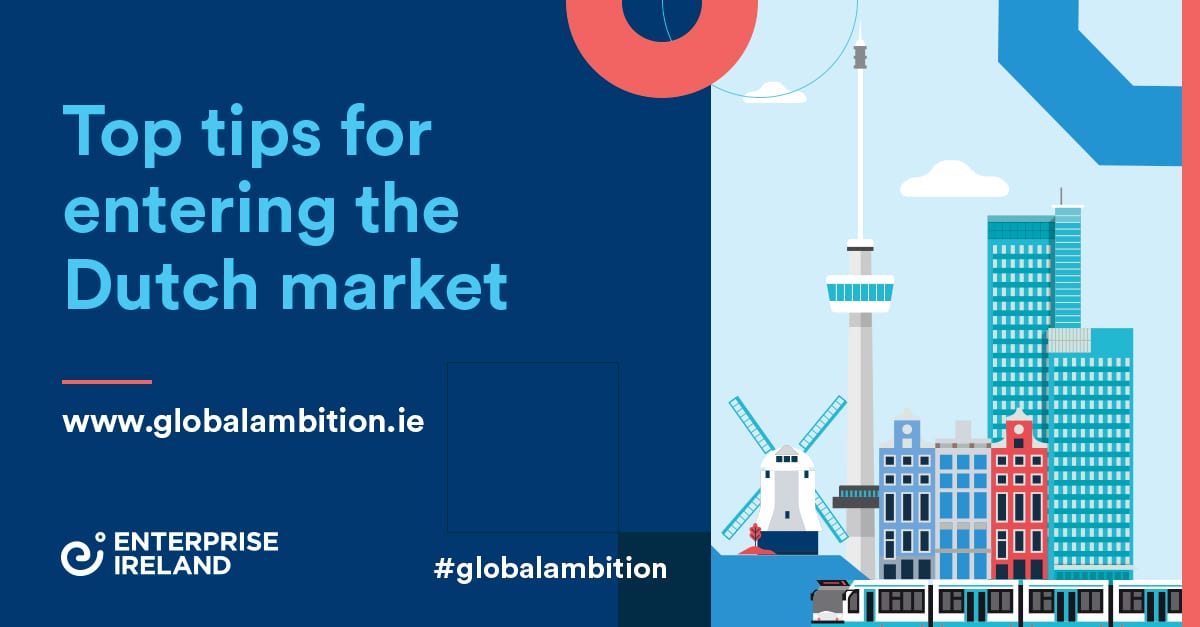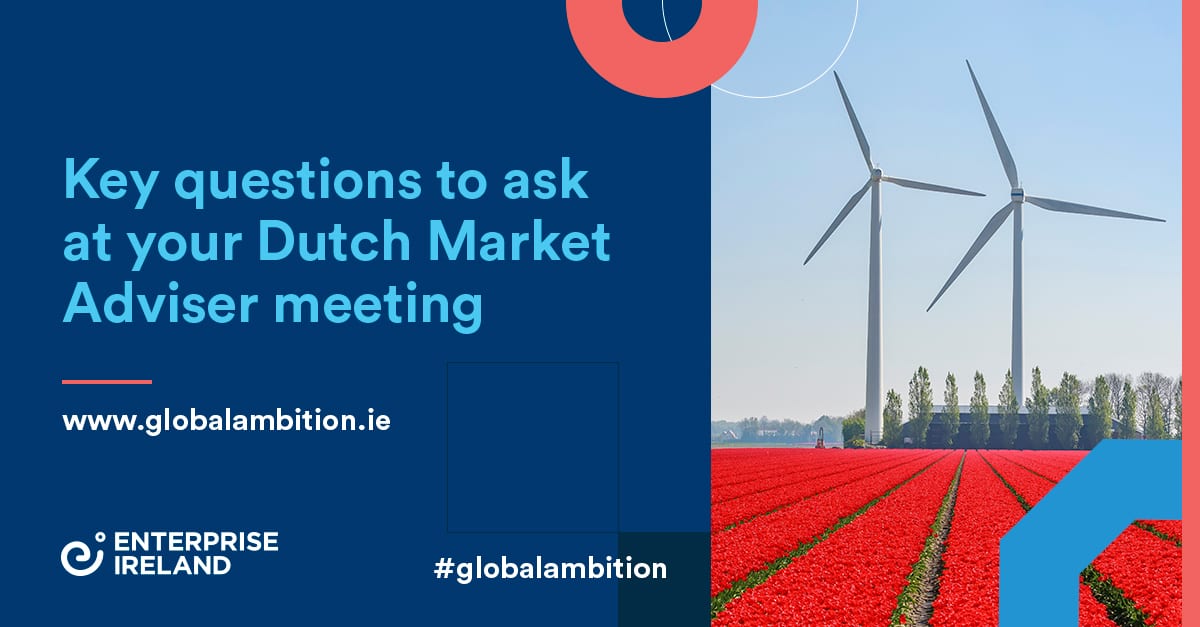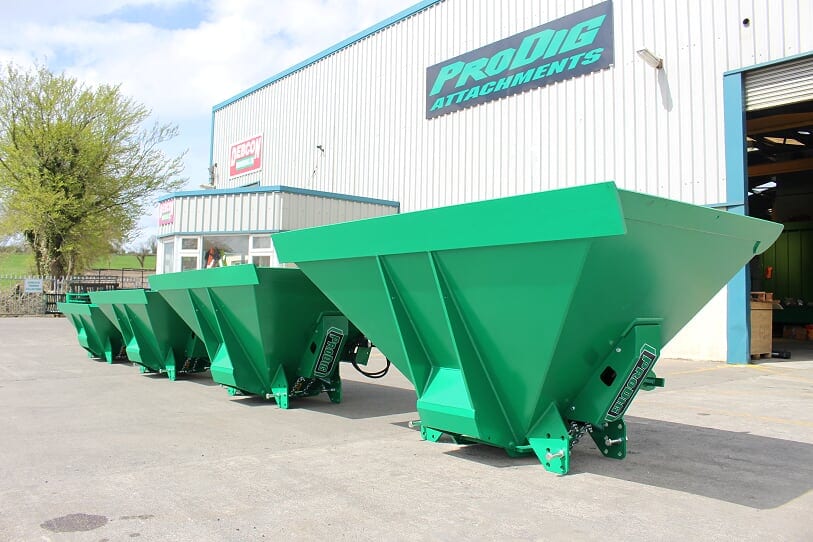Scaling into Europe for business success
A growing number of Irish companies are blazing a trail into Europe. Here’s why.
If ever there was a time to diversify and seek opportunities in new markets, for Irish businesses the time is now.
As a member of the Eurozone, Irish firms are well positioned for market diversification. Although launching into a new market carries risks, the Eurozone offers several advantages.
First, there is easy access to 340 million people in 19 states that share the single currency. There is the Eurozone’s stable economy that, as a bloc, will continue to grow a further 1.3% through 2019. The benefits of single currency should not be underestimated, offering zero currency risk without fluctuating exchange rates or conversion costs.
Trade in the Eurozone also benefits from the absence of tariffs and customs, while a common regulatory environment means that Irish goods and services comply with EU legislation.
Irish companies in Europe
Irish companies have blazed a trail into Europe before, for these reasons and more. At Enterprise Ireland’s Eurozone Summit earlier this year, Irish firms described how diversification has proven to be the key to growth. Among them was Irish workwear company Portwest, who warned that when a single client went under, they lost 35% of their business.
“It taught us a hard lesson about diversification,” said Orla Hughes, the firm’s European Commercial Manager. “If we didn’t expand to Europe, we would have 50% of our business now.”
That move 15 years ago, has seen the firm build out its sales model through distributors, and Hughes believes the Eurozone offers huge potential. “In our top 10 Eurozone countries, we have 4,500 customers or distributors of our products. When it comes to the Eurozone, even though we have been there 15 years, we feel we have only scratched the surface. Of the 60 trade shows we did worldwide last year, 35 of them were in the Eurozone. It’s got enormous potential for us.”
There were key learnings for Portwest as it hit new markets with its workwear range. For instance, in Germany, orange hi-visibility workwear vests are typically the preserve of refuse collectors, so local differences can affect sales, said Hughes.
Some Irish start-ups have seen success by taking their first steps in Europe.
When ParkPnP, a parking marketplace, conducted market research, it found strong competitors already in its target market – the UK – so opted instead to move directly into the European space, with the densely populated Benelux region firmly in its sights. By acquiring a local Belgian firm in the same space, it quickly acquired market share and, importantly, local market knowledge.
CEO Garret Flower described the critical importance of doing market research ahead of launching into a new territory: “You are immediately drawn to Germany because of the scale. It sounds huge.
“But dig a little deeper and you find that Germans don’t pay for their parking via apps; 90% of them still prefer to pay by coin.
“When we looked at Europe, we saw it was very much a greenfield, so we believed that if we could get to market first, we could grow quickly to maximise unused parking space with our solution.” ParkPnP CEO, Garret Flower
The decision to locate in Belgium paid off, and the firm has adopted a franchising model to branch into the Netherlands.
“Having done it this way, we feel we have a solid foundation to roll out across Europe and can now go into France and Germany. Franchising with local players, for us, we felt was, and is, the best way to roll out. It gives us speed and speed helps us to scale.”
In order to successfully tap into Eurozone markets all elements of new market entry preparations are required: market research to select the market with the best opportunities, a value proposition that matches the new market and highlights your competitive advantage, the right route to market, and the resourcing of people, skills and funding to make it happen.
Enterprise Ireland’s world-class Market Research Centre has extensive resources to aid your research, while our Excel at Market Intelligence programme will advise how best to conduct market research.
Our Market Discovery fund is a key financial support for new market entry, ensuring you have funding to research, get expert advice and conduct market study visits. GradStart provides up to 70% of two-year salaries for graduates with relevant market language skills.
Companies we support benefit from our market advisers’ near-unmatched knowledge of market dynamics, target buyers, networks and ecosystems across six Eurozone locations. When you’re ready to enter the market, we offer a key manager grant to help co-fund the salary of personnel with the right skills to work with market advisers and drive your diversification plans.




 “I found myself spending far too much time on trying to manage these dressings. The straw that really broke the camel’s back was when I attended a friend’s hen party and was talking to the groom’s mother. I was shaking her hand and a dressing just fell out of my dress. I always had this idea to develop some sort of solution and that just spurred me on to really find something that worked for HS patients.”
“I found myself spending far too much time on trying to manage these dressings. The straw that really broke the camel’s back was when I attended a friend’s hen party and was talking to the groom’s mother. I was shaking her hand and a dressing just fell out of my dress. I always had this idea to develop some sort of solution and that just spurred me on to really find something that worked for HS patients.”
















